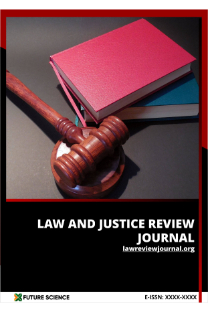ETHICAL ISSUES FACING JUDGES
Bu çalışmada, özellikle ceza hukuku bağlamında yargıçların icra ettikleri işlerin etik açıdan en önemli yönlerinden bazıları açıklanmıştır. Çalışma hâkimlerin baktıkları davaların etik özelliklerinden ziyade bağımsız yargı söz konusu olduğunda hükümetin temel kollarından birindeki en önemli figürler olarak hâkimlerin sorumluluklarının etik yönlerine odaklanmaktadır. Hâkimlerin yargı sisteminin bütünlüğünü korumak ve cezai kovuşturmalar ile ilgili çok önemli yetkileri elinde bulundurmak gibi son derece önemli sorumlulukları vardır. Ayrıca bazı ülkelerde, (belirli mahkemelerde) hâkimler, yasa ve idari tasarrufların anayasal açıdan uygun olup olmadığına karar vermek gibi yargısal denetim yetkisine sahiptirler. Çalışmada yer alan tartışmalar ABD odaklı olsa da bazı temel hususlar birçok ülkedeki hâkimlerin görevleri için de geçerlidir
Hâkimlerin Karşılaştığı Etik Sorunlar
This paper explicates some of the ethically most significant aspects of the work of judges, especially in the context of criminal justice. It does not focus on the ethical features of the cases over which judges preside but on the ethical aspects of judges responsibilities as key figures in a fundamental branch of government, when it includes an independent judiciary. Judges have a vitally important responsibility for maintaining the integrity of the judicial system as well as having highly important powers with regard to criminal proceedings. In addition, in several countries, judges (in certain courts) have the power of judicial review, making determinations of whether law and executive acts are constitutionally valid. The discussion focuses on the U.S. but some of the main points apply to the role of judges in many countries.
